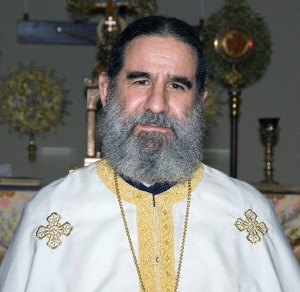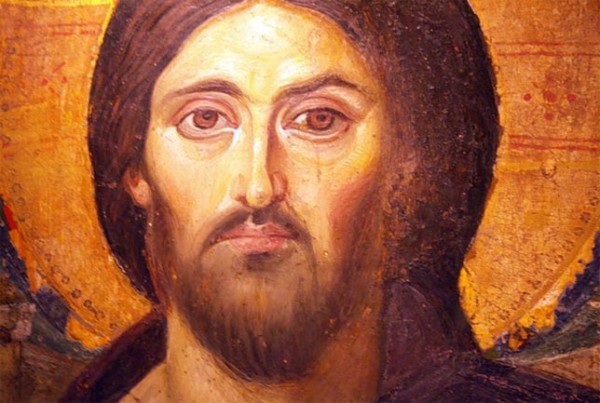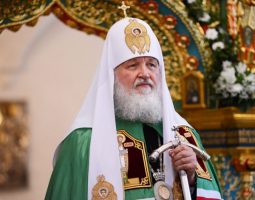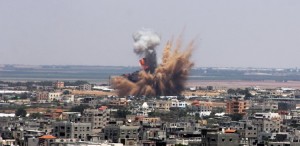As the killing rages in Gaza I cannot help but wonder what could be the solution to this very complicated and emotionally charged problem (emotional even for Americans-if you watch the daily news and commentaries!).
Of course, I cannot imagine that the desired peaceful solution will come if Hamas continues firing rockets into Israel killing Jews, nor can I see peace come if the Israeli army continues the killing of Palestinian Moslems. This has already been happening for over 66 years and it has only made things worse.
So, I raise the question: What is the solution that can lead to Peace in the Holy Land and the Middle East? And my answer is, Jesus, Yeshua (ישוע),ʿĪsā – al Masih (عيسى)!!!
It is my contention that it will greatly help the cause of peace if the Israeli Jews were to look again at Jesus (one of their own) and consider His teaching as an option for their nation (since His teaching was originally meant for them, anyway).
Of course, Jesus’s message was first for the Jews, but not only. It is also for the Moslems, as well as everyone else!
The Moslems, in turn, need to take a closer look in the Quran and re-consider Jesus, the Messenger of God, and His teachings concerning war and peace.
Interestingly enough, the Quran shows great respect for Jesus as a Prophet and calls Him “the Messenger of God” and “the Word of God”, yet many Moslems do not pay enough attention to His teachings.
 Jesus has a good message for the world; He spoke about gentleness and peace; He declared that, “blessed are the peacemakers” and “blessed are the meek”. He did not teach that people should kill one another, either for revenge, or for land, neither for faith nor for God, nor for any other reason, and definitely not as a way to paradise!
Jesus has a good message for the world; He spoke about gentleness and peace; He declared that, “blessed are the peacemakers” and “blessed are the meek”. He did not teach that people should kill one another, either for revenge, or for land, neither for faith nor for God, nor for any other reason, and definitely not as a way to paradise!
Jesus raised the bar further by asking us not just to not seek revenge (as is the case in the dictum “an eye for an eye and a tooth for a tooth”), but even to “turn the other cheek”. He went beyond the norm, encouraging people to not only love those who love them, but also “love their enemies”!
Not only did Jesus not preach violence and the killing of the others, but He went to great lengths to emphasize the new message of the New Covenant, “peace on earth”: Before His crucifixion, when the Jewish guards came to the Garden of Gesthemane to arrest Him, Peter pulled out his knife and cut the ear of the servant of the high priest. But Jesus healed the man by re-attaching his ear. He then rebuked Peter asking him to put his knife away saying, “if you live by the knife, you will also die by the knife” (which accurately describes the current state of affairs in the Middle-East).
If the Moslems of the Middle-East want to really follow the Quran and honor Jesus as a great Prophet and Messenger of God, it will be a good idea for them to heed to His message, as well. This will bring peace among themselves, as well as with those around them.
On the Israeli side, those who profess to be Jews today and claim to honor Yahweh cannot ignore Jesus, for the people of his time (their own forefathers) proclaimed Him to be the Messiah (the Christ) promised by God to His chosen people. Both His miracles and His teachings stand out in the history of the Jewish people (and of the whole world) as extraordinary. Millions of people continue to believe in Him as the Messiah, the One promised to the Jews through the prophets in the ancient Scriptures. Judaism will be greatly enriched and Yahweh will be greatly pleased if modern Jews will consider Jesus and His teachings as a complement to the teachings of the old Scriptures (the Old Testament), which they still abide by.
As followers of Jesus Christ, we have an obligation to present His authentic teachings to both Jews and Moslems (and the rest of the world) as we have inherited them from the Apostles. We are called to live the Gospel and witness the True Faith to those willing to listen. The Gospel becomes more effective when those who preach it actually live by it. There should be no compromise of the Gospel for the sake of nationalistic, political or emotional leanings toward any one side of the conflict in the Middle-East.




















